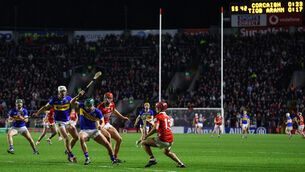Six Nations injury fear for clubs in captivating Champions Cup run-in

The Champions Cup may have its glitches but nobody will argue with the quality of the sides that have made it through to the knockout phase. Two of the four quarter-finalists evoke memories of mouthwatering finals in the past when Munster beat Toulouse at the Millennium Stadium in 2008 to win the Heineken Cup for the second time and that enthralling 2013 final in Dublin when Toulon won the first of their three in a row by a single point over Clermont Auvergne.
It is great for the tournament, and for Scottish rugby, that Glasgow Warriors have reached this stage for the first time, bringing the Guinness Pro 12 representation to three having had none last season.









